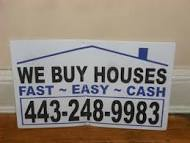Foreclosure Rescue and Mortgage Modifications Scams
When a foreclosure is filed in the court system, it becomes a public record and anyone can access the basic information regarding the case, which includes the homeowner’s name and address. Unfortunately, this means that this personal information can be used by unscrupulous businesses and individuals who want to take advantage of distressed homeowners. Con artists will approach homeowners in person, by mail, over the phone or through email. They also often advertise their “services” on television, radio, websites, and in newspapers, describing themselves as legitimate “foreclosure or mortgage consultants” and offering “foreclosure prevention or rescue” services.
If someone promises they can save your home, offers to negotiate a loan modification, or stop or delay a foreclosure for a fee, carefully check their credentials, reputation, and professional experience.
Mortgage servicers can help consumers find real alternatives to foreclosure; however, it is important that the homeowner contact the mortgage servicer early to preserve all their options. There are also legitimate housing counselors and consumer financial advising agencies that help homeowners work with their servicers. To find a legitimate source of help, visit the Consumer Financial Protection Bureau’s online search tool.
 There are many types of Scams:
There are many types of Scams:
There are several types of foreclosure rescue and mortgage modification scams, and new ones are discovered constantly. To be successful, these scams are made to look as legitimate and appealing as possible, so it is extremely important to be familiar with the types of scams so you can recognize and avoid them.
- The NeighborWorks® America Loan Modification Scam Alert website provides descriptions of some of the Most Common Scams.
- The Federal Trade Commission provides descriptions of how Common Foreclosure Scams Work.
 Warning Signs of Scams:
Warning Signs of Scams:
Just as there are several types of scams, there are also several warning signs. These include:
- A homeowner being told they’ve been “pre-selected” for mortgage and foreclosure rescue services
- A company or individual claiming unrealistic success rates
- A company or individual saying that no one else can help the homeowner
The NeighborWorks® America Loan Modification Scam Alert website provides warning signs of scams and How to Spot Scams.
Tips to Avoid Scams:
Knowing about the different types of mortgage modification and foreclosure scams and being able to recognize the warning signs is the first step in protecting yourself. There are also a few simple concepts that can help keep you from falling into a trap:
- Don’t pay when FREE help is available
- Don’t respond to unsolicited mailings, calls or visitors unless you can determine the source is trustworthy
- Read the fine print of any deal
Don’t hesitate to follow your instincts. If you feel that you have been approached by a potential scam, but you aren’t quite sure, do a little research before you commit to anything. A simple internet search for the name of the individual or company should bring up any complaints posted by other people. Reading these complaints can help you determine if the offer to help is legitimate or a scam.
Always remember that you can contact a government-approved housing counseling agency and get quality assistance for free. The Consumer Financial Protection Bureau’s on-line search tool will help you find the housing counseling agency nearest you.
The Federal Reserve System: 5 Tips for Avoiding Foreclosure Scams
Reporting Potential Scams:
The best way to avoid mortgage modification and foreclosure scams is for them to be eliminated entirely. There are many agencies working to identify, investigate and shut down mortgage modification and foreclosure scam operations, and they need the public’s help. If you believe you have been approached by a scam artist or are aware of a potential scam through any type of advertising, be sure to save all paperwork and/or contact information that you receive, document conversations, and report the suspicious activity immediately. By reporting potential scams, you will be helping protect yourself and your neighbors from losing their money and their homes. You’ll be keeping our communities strong and safe.
The NeighborWorks® America Loan Modification Scam Alert website provides instructions on how to report scams.
The Office of the Controller of the Currency Consumer Advisory #CA 2011-1 statement provides excellent information on:
- Avoiding Scams
- Common Types of Scams
- How to Protect Yourself
- New Federal Rules to Protect Homeowners
- Warning Signs of a Scam
 To learn more about how to retain your home, please visit the Foreclosure Intervention pages listed below:
To learn more about how to retain your home, please visit the Foreclosure Intervention pages listed below:
